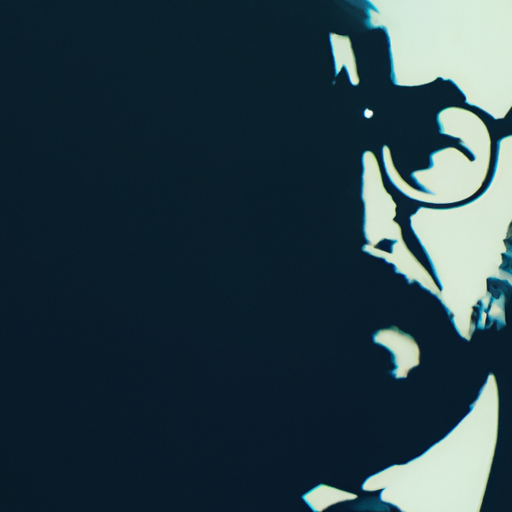
-
Table of Contents
Minimalist Packaging: Less is More

When it comes to packaging, the saying “less is more” has never been more relevant. In recent years, minimalist packaging has gained popularity among consumers and businesses alike. This approach focuses on simplicity, sustainability, and functionality, offering numerous benefits for both the environment and the bottom line. In this article, we will explore the concept of minimalist packaging, its advantages, and how it is reshaping the packaging industry.
The Rise of Minimalist Packaging
Minimalist packaging is a response to the growing demand for sustainable and eco-friendly products. As consumers become more conscious of their environmental impact, they are actively seeking out brands that align with their values. Minimalist packaging, with its emphasis on reducing waste and using fewer materials, has emerged as a solution to this demand.
One of the key drivers behind the rise of minimalist packaging is the desire for simplicity. In a world filled with clutter and information overload, consumers are drawn to products that offer a clean and uncluttered experience. Minimalist packaging cuts through the noise and delivers a clear message, allowing the product to speak for itself.
The Benefits of Minimalist Packaging
Minimalist packaging offers a range of benefits for both consumers and businesses. Let’s take a closer look at some of these advantages:
1. Environmental Sustainability
One of the most significant advantages of minimalist packaging is its positive impact on the environment. By using fewer materials and reducing waste, minimalist packaging helps to conserve resources and minimize carbon emissions. According to a study by the Sustainable Packaging Coalition, minimalist packaging can reduce greenhouse gas emissions by up to 30% compared to traditional packaging.
Furthermore, minimalist packaging often utilizes recyclable or biodegradable materials, further reducing its environmental footprint. Brands that adopt minimalist packaging are not only meeting consumer expectations but also contributing to a more sustainable future.
2. Cost Savings
Minimalist packaging can also lead to significant cost savings for businesses. By using fewer materials, companies can reduce their packaging costs, including the cost of raw materials, production, and transportation. Additionally, minimalist packaging often requires less storage space, resulting in lower warehousing costs.
Moreover, minimalist packaging can help businesses streamline their supply chain and logistics. With fewer components and simpler designs, packaging processes become more efficient, reducing labor and operational costs. These cost savings can be reinvested in other areas of the business or passed on to consumers, making products more affordable.
3. Enhanced Brand Image
Minimalist packaging can have a profound impact on a brand’s image and perception. By embracing simplicity and minimalism, brands can convey a sense of sophistication, elegance, and modernity. Minimalist packaging often exudes a premium feel, making products appear more luxurious and desirable.
Furthermore, minimalist packaging aligns with the values of sustainability and environmental consciousness, which are highly valued by today’s consumers. By adopting minimalist packaging, brands can position themselves as responsible and forward-thinking, attracting a loyal customer base that shares these values.
Examples of Successful Minimalist Packaging
Several brands have successfully embraced minimalist packaging and reaped the benefits. Let’s explore some notable examples:
1. Apple
Apple is renowned for its minimalist packaging design. The company’s sleek and simple packaging not only reflects its brand identity but also enhances the overall user experience. Apple’s packaging is designed to be functional, protecting the product while minimizing waste. The minimalist approach has become synonymous with Apple’s commitment to quality and innovation.
2. Glossier
Glossier, a beauty brand, has gained a cult following with its minimalist packaging. The brand’s clean and minimalistic design reflects its focus on natural beauty and simplicity. Glossier’s packaging is not only aesthetically pleasing but also practical, with products designed to be easy to use and travel-friendly. The minimalist packaging has become a key part of Glossier’s brand identity and has helped the company stand out in a crowded market.
3. Muji
Muji, a Japanese retail company, is known for its minimalist packaging across a wide range of products. Muji’s packaging is characterized by its simplicity, functionality, and use of natural materials. The brand’s minimalist approach aligns with its philosophy of “no-brand” and focuses on the product’s quality and utility. Muji’s minimalist packaging has resonated with consumers worldwide, contributing to the brand’s global success.
The Future of Minimalist Packaging
As consumers continue to prioritize sustainability and simplicity, the future of minimalist packaging looks promising. The packaging industry is evolving to meet these demands, with innovative solutions and materials being developed.
One emerging trend is the use of biodegradable and compostable materials for minimalist packaging. Brands are exploring alternatives to traditional plastics, such as plant-based materials and biopolymers, to create packaging that is both functional and environmentally friendly.
Another trend is the integration of technology into minimalist packaging. Smart packaging, equipped with sensors and interactive features, can provide consumers with real-time information about the product’s freshness, usage, and sustainability. This not only enhances the user experience but also promotes transparency and accountability.
Conclusion
Minimalist packaging is more than just a design trend; it is a response to the changing consumer landscape and a commitment to sustainability. By embracing simplicity, functionality, and environmental consciousness, brands can create packaging that resonates with consumers and delivers tangible benefits.
From reducing waste and conserving resources to enhancing brand image and reducing costs, minimalist packaging offers a range of advantages. Brands that adopt minimalist packaging can position themselves as leaders in sustainability and attract a loyal customer base.
As the packaging industry continues to evolve, minimalist packaging will play a crucial role in shaping the future. By embracing the principle of “less is more,” businesses can create packaging that is not only visually appealing but also environmentally responsible.
